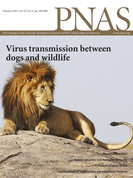 We should probably launch a new blog just on the euphemisms used for plagiarism.
We should probably launch a new blog just on the euphemisms used for plagiarism.
A case of “inadequate procedural or methodological practices of citation or quotation” causing an “unacceptable level of text parallels” has sunk a review paper, but not a thesis, for a PhD who studied memory consolidation at Maynooth University in Ireland. According to a statement from the school, Jennifer Moore used “poor practice of citation and attribution” in both her thesis and in a review article published with her post-graduate P.I. in Reviews in the Neurosciences.
The review article, which has been cited four times, according to Thomson Scientific’s Web of Knowledge, will be retracted. Because there was no data fabrication and “no misleading of other scientists or laboratories,” the school will not be retracting the thesis nor taking away her PhD.
According to Google Scholar, the review has been cited 8 times. Moore now works as a neuropsychologist at the Great Ormond Street Hospital in London. We’ve contacted her for comment and will update if we hear back.
Here’s the notice for “Reconsolidation Revisited: A Review and Commentary on the Phenomenon”: Continue reading “Unacceptable level of text parallels” loses neuroscientist a paper, but not her PhD
 The authors of a 2007 PNAS paper that provided molecular details for how calorie restriction may act on Sir2 enzymes to extend life are now retracting their research after discovering a figure was compromised by “several unintentional anomalies in the background image.”
The authors of a 2007 PNAS paper that provided molecular details for how calorie restriction may act on Sir2 enzymes to extend life are now retracting their research after discovering a figure was compromised by “several unintentional anomalies in the background image.”







